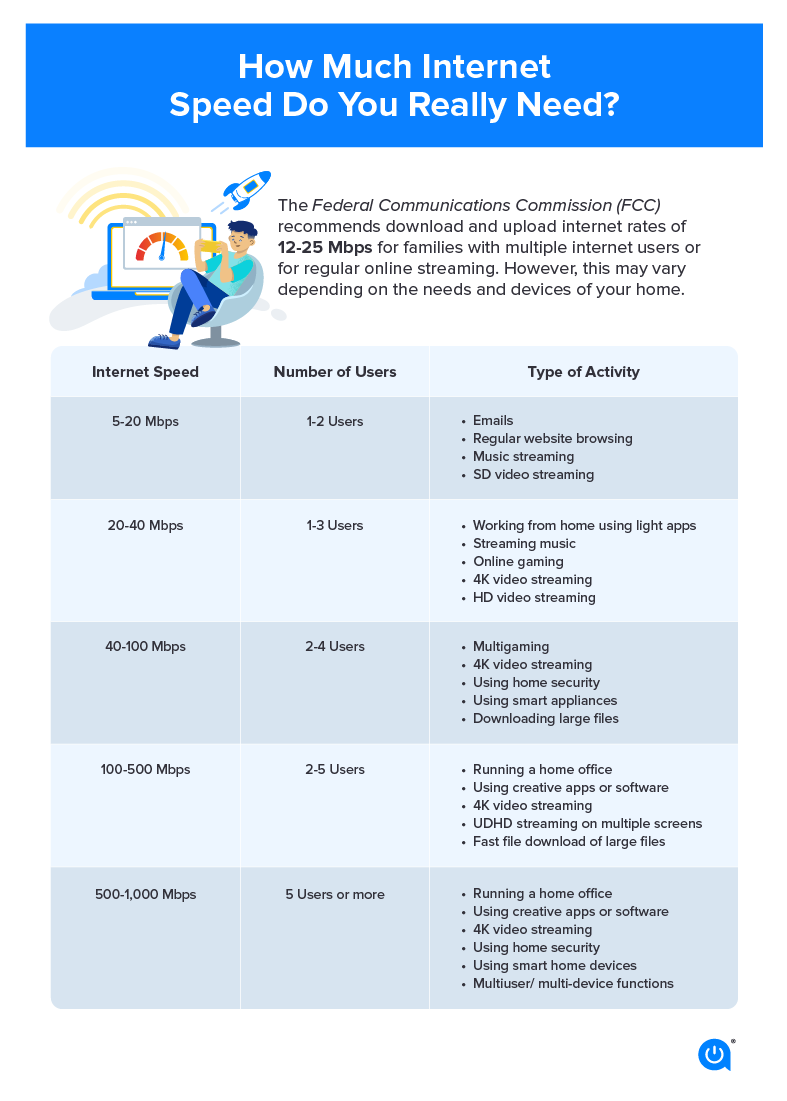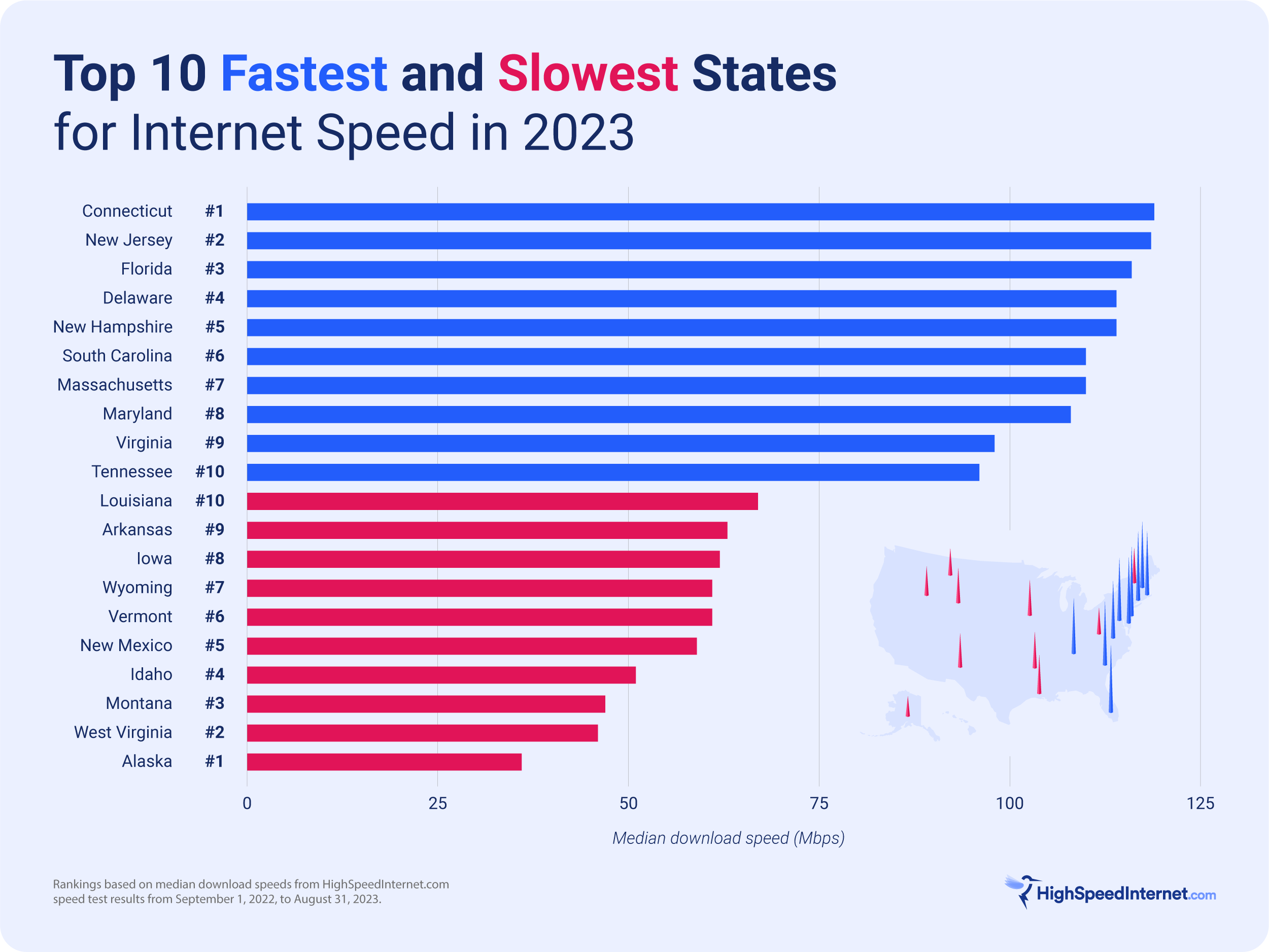The Duty of Megabits Per Second in Online Video Gaming Efficiency
The Duty of Megabits Per Second in Online Video Gaming Efficiency
Blog Article
Just How Megabits Per Second Influence Your Online Tasks
The concept of megabits per second (Mbps) plays a crucial role in forming our on-line experiences. Higher Mbps can enhance performance and lower disruptions, while insufficient rates may cultivate frustration and inefficiency.
Recognizing Megabits Per Second
When thinking about internet rate, it's necessary to comprehend the concept of megabits per second (Mbps), which acts as a standard measurement for data transfer rates. This metric evaluates how much data can be transmitted over a web connection in one second, providing a clear understanding of efficiency capacities - Megabits Per Second. For context, one megabit is equal to one million bits, and Mbps is frequently made use of to share transmission capacity for various on-line activities
A greater Mbps shows a faster internet connection, enabling individuals to perform jobs such as downloading and install files, browsing internet sites, and involving in on-line video gaming more effectively. As an example, common surfing requires around 1-5 Mbps, while streaming high-def video clip might demand 5-25 Mbps. Comprehending these requirements is essential for identifying the suitable internet speed required for specific activities.
In addition, the variety of devices linked to a network can impact general performance. Multiple individuals streaming, video gaming, or downloading concurrently can strain readily available data transfer, resulting in slower speeds - Megabits Per Second. Reviewing individual online practices and demands is crucial in picking an internet strategy that straightens with one's needs, ensuring a seamless electronic experience
Streaming and Buffering Issues
Streaming high-def content has actually become a staple of modern online home entertainment, yet it is often accompanied by irritating buffering concerns. These disturbances can considerably detract from the seeing experience, bring about dissatisfaction and possible loss of audience engagement. Buffering happens when the data transmitted from the streaming service is not received rapidly sufficient to maintain a smooth playback, commonly due to insufficient web speed gauged in megabits per second (Mbps)

Furthermore, real-time streaming can be influenced by network blockage, which occurs when numerous devices share the exact same bandwidth. As a result, enhancing connection speed and ensuring ample Mbps is essential for a smooth streaming experience. As streaming services remain to progress, recognizing the effect of Mbps on buffering concerns continues to be important for customers looking for continuous home entertainment.
Online Video Gaming Performance
The influence of web rate on online tasks prolongs beyond streaming, substantially influencing online gaming performance. In competitive video gaming, reduced latency and high bandwidth are essential for a seamless experience. A quick link minimizes lag, enabling gamers to react quickly to in-game events, which can be the distinction between success and defeat.
Transmission capacity, determined in megabits per second (Mbps), plays a crucial function in supporting multiple tools and video gaming platforms at the same time. Inadequate transmission capacity can cause dropped links or decreased video game high quality, adversely impacting gameplay. For example, online multiplayer video games need substantial data transfer, particularly throughout peak video gaming hours when various players are online.
Busy first-person shooters demand higher rates to preserve responsiveness, while turn-based technique games may work moderately well on reduced speeds. As online pc gaming continues to advance, with raising graphical fidelity and more complex multiplayer settings, the need for higher Mbps will just escalate.
Video Conferencing High Quality
In today's electronic landscape, video conferencing high quality is heavily affected by internet rate, especially in terms of bandwidth and latency. Premium video clip calls call for adequate data transfer to transmit audio and video clip information effortlessly. Generally, a minimum of 1.5 Mbps upload and download rates is recommended for conventional interpretation video clip, while high-definition video conferencing usually requires at the very least 3 Mbps.
Latency, or the hold-up between sending and go to the website obtaining data, likewise plays a crucial function in the customer experience. Greater latency can lead to echo, lag, and disjointed communications, which can prevent collaboration and engagement throughout meetings.
Furthermore, several participants in a video meeting can strain available data transfer, demanding even higher rates. Network congestion, commonly triggered by synchronised tasks like streaming or downloading, can even more weaken video quality. Thus, for organizations depending on video clip conferencing for remote cooperation, understanding the connection in between megabits per second and overall interaction top quality is crucial for keeping productivity and boosting virtual interactions.
Choosing the Right Internet Plan
Picking a suitable net plan is essential for ensuring optimal performance in numerous on the internet activities, specifically in setups that require high transmission capacity, such as video clip conferencing and online gaming. Megabits Per Second. When visit the website taking into consideration an internet strategy, it is vital to evaluate both the speed and information allowance to match your certain use needs
For houses with several customers taking part in synchronised activities, a strategy supplying higher megabits per second (Mbps) is suggested. Usually, a minimum of 25 Mbps is suitable for conventional streaming and surfing, while strategies going beyond 100 Mbps are more effective for more extensive tasks. Additionally, consider the nature of your online activities; video conferencing requires a minimum of 1.5 Mbps upload rate, while on-line pc gaming might require a lower latency yet regular connection.
It is also crucial to analyze your information cap. Unlimited data strategies can stop strangling and disturbances, particularly if heavy usage is expected. Finally, research company in your location, as accessibility and pricing can differ. By thoughtfully selecting a net plan customized to your demands, you can enhance your on the internet experience, making sure smooth, continuous access to your recommended activities.
Conclusion
In verdict, the importance of investigate this site megabits per second (Mbps) in shaping on the internet tasks can not be overstated. A complete understanding of specific or family Mbps needs is essential for choosing a suitable net strategy that effectively supports diverse online activities and customer demands.

Normally, a minimum of 25 Mbps is appropriate for standard streaming and browsing, while plans exceeding 100 Mbps are more effective for more intensive jobs. Furthermore, take into consideration the nature of your online activities; video clip conferencing requires at least 1.5 Mbps upload speed, while on the internet pc gaming may need a lower latency but constant connection.
Report this page